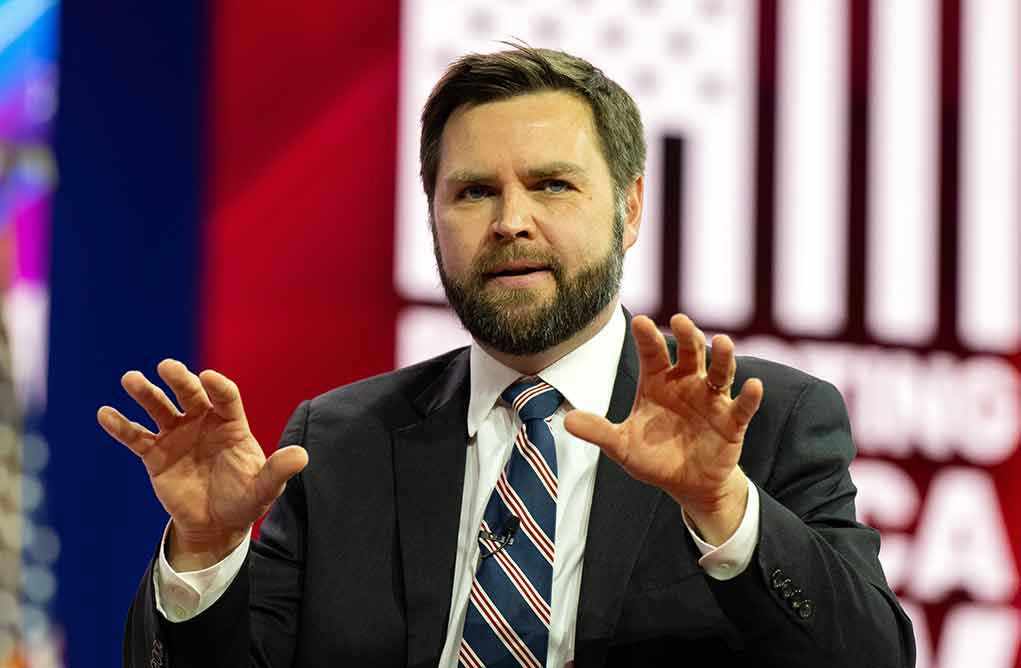
Democratic governors are decrying President Trump’s sweeping federal crime crackdown, but Vice President Vance’s sharp question—why are they angrier at enforcement than at the crime itself?—is fueling a national debate that strikes at the heart of law, order, and the future of local control.
Story Highlights
- President Trump’s deployment of National Guard and federal agents in DC triggers fierce backlash from Democratic governors.
- VP JD Vance challenges Democratic leaders’ motives, questioning their opposition to federal intervention over rising crime rates.
- Over 600 arrests reported since the intervention began, as law enforcement actions escalate and protests intensify.
- The clash over federal versus local authority heightens political tensions ahead of the 2028 presidential race.
Federal Crime Crackdown in DC Sparks National Debate
On August 11, 2025, President Trump declared a crime emergency in Washington, DC, authorizing immediate federal intervention and deploying the National Guard and federal agents to the nation’s capital. This unprecedented move comes in response to a surge in violent crime, with DC experiencing a homicide rate of 27.54 per 100,000 and leading the nation in vehicle thefts last year. The administration’s stated goal is to restore public safety and send a message that lawlessness will no longer be tolerated, especially in Democrat-led cities where crime has spiked.
Since the federal takeover, law enforcement agencies have reported over 600 arrests in just under two weeks, a marked escalation in policing activity. President Trump publicly thanked law enforcement and the National Guard for their rapid action, emphasizing that restoring safety is a federal responsibility when local leaders fail to protect their communities. However, the aggressive federal presence has also drawn widespread protests from residents and sparked intense criticism from city officials who argue that local reforms were beginning to yield results.
Democratic Governors Condemn Federal Overreach
Democratic governors Gavin Newsom, JB Pritzker, and Wes Moore have condemned the federal intervention as a blatant political stunt aimed at undermining state and local authority. They assert that Trump’s actions are less about public safety and more about scoring points for the upcoming 2028 presidential election. These leaders argue that federal deployment erodes the principle of local governance, disrupts established community policing strategies, and sets a dangerous precedent for future executive overreach. Their vocal opposition underscores broader concerns about the balance of power between states and the federal government.
Washington, DC Mayor Muriel Bowser echoed these sentiments, insisting that crime rates had begun to decline due to local initiatives and that federal intervention was unnecessary and disruptive. Metropolitan Police Department Chief Pamela Smith acknowledged that federal agents provided resources but emphasized the importance of maintaining local control over law enforcement priorities and strategies. These local perspectives highlight the complexity of balancing effective crime reduction with respect for constitutional boundaries.
Vance’s Challenge and Political Ramifications
Vice President JD Vance has become the administration’s most vocal defender, directly questioning why Democratic leaders appear angrier at the federal crackdown than at the underlying crime that prompted it. During a high-profile visit to DC on August 21, Vance was heckled by protesters but stood firm in media appearances, framing the debate as a test of priorities: public safety versus political posturing. Vance and Trump have linked the effectiveness of the crackdown to the records of Democratic rivals, arguing that failure to support decisive action against crime will haunt their opponents in the 2028 presidential race.
This federal-state standoff has heightened political polarization, with Republicans framing the intervention as a necessary response to failed “woke” policies and Democratic leaders warning of creeping authoritarianism. The confrontation is likely to influence campaign narratives nationwide, especially as Trump signals plans to expand similar federal interventions to other crime-plagued cities, further challenging the traditional limits of executive power.
Local Impact, Constitutional Questions, and the Road Ahead
The immediate impact of the federal crackdown is felt most keenly by DC residents, law enforcement, and local officials. While some residents welcome the increased police presence and declining crime reports, others fear the erosion of civil liberties and the undermining of democratic norms. Legal scholars and law enforcement experts caution that, while federal resources can aid public safety, poorly coordinated interventions risk damaging community trust and setting precedents that threaten states’ rights and local governance.
Vance questions why Democrats are angrier about Trump’s plan to tackle crime than crime itself https://t.co/3mSCjhC0cE
— Observing Time 🏴☠️ (@TimeObserving) August 26, 2025
As the political battle heats up ahead of the 2028 election, the effectiveness and legitimacy of federal intervention in local crime remain hotly contested. The outcome of this clash will shape not only public safety policy but also the future of federalism, constitutional authority, and the ongoing struggle over American values, law, and order.
Sources:
Trump and JD Vance Attack 2028 Rivals in National Guard Push
Declaring a Crime Emergency in the District of Columbia
Protesters Heckle Vance, Hegseth, Miller at Photo Op in DC




